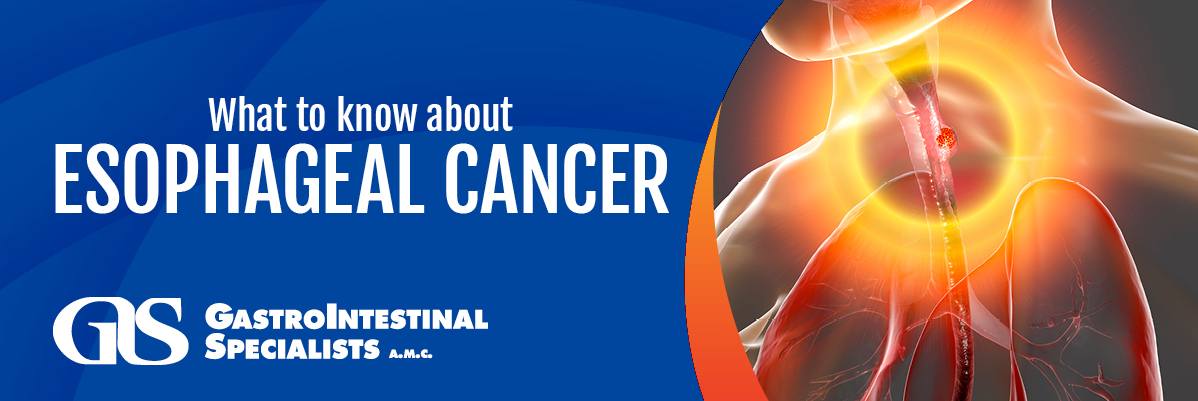
Esophageal cancer is a cancer that occurs anywhere within the esophagus. This is the part of the digestive tract that connects the throat to the stomach. Although it is not a common cancer, it’s important to be aware of the symptoms, risks and prevention.
How Common Is Esophageal Cancer?
According to the American Cancer Society, esophageal cancer accounts for 1% of all cancer diagnoses in the United States. More than 22,000 cases are diagnosed each year. The lifetime risk is 1 in 127 for men and 1 in 434 for women.
Causes Of Esophageal Cancer
Like all cancers, esophageal cancer occurs as a result of DNA mutations that cause cells to grow abnormally. These changes within the cell DNA can occur for several reasons, including genetics, lifestyle factors and environmental factors.
Risk Factors For Esophageal Cancer
There are a number of factors that can increase the risk of esophageal cancer.
- Age (more common in people 55 years of age and older)
- Being male
- Smoking
- Drinking alcohol
- Obesity
- Sedentary lifestyle
- Dietary factors (A diet high in processed meats or drinking exceptionally hot liquids may also play a role.)
- Esophageal conditions like gastroesophageal reflux disease (GERD), Barrett’s esophagus and achalasia
- High-risk human papillomavirus infection (HPV-16)
- Certain inherited diseases
Symptoms Of Esophageal Cancer
Symptoms typically only occur when the disease has progressed. They include trouble swallowing, coughing, hoarseness, chest pain, increased heartburn symptoms and unintentional weight loss.
Treatment And Prognosis For Esophageal Cancer
The treatment for patients with esophageal cancer depends on the stage of the cancer. Early-stage cancers may be treated with endoscopic procedures and/or surgery. More advanced cases may require chemotherapy, radiation and/or surgery along with immunotherapy or targeted drug therapy.
The current five-year relative survival rate also depends on the cancer stage. It ranges from 48% for localized cancers (confined to the esophagus), 28% for regional cancer (cancer that has spread but not to distant organs) and 5% for distant cancers (cancer that has spread to distant organs or lymph nodes).
Preventing Esophageal Cancer
Not all risk factors can be mitigated, but there are a number of healthy lifestyle habits that can decrease your risk.
- Not smoking or quitting if you do smoke
- Avoiding alcohol
- Eating a diet low in saturated fat and high in plant foods and fiber
- Being physically active
- Reaching and/or maintaining a healthy weight
- Managing any esophageal conditions and getting appropriate monitoring
If you are struggling with heartburn or other esophageal conditions or if you are concerned about your esophageal cancer risk, the expert team at GastroIntestinal Specialists can help.
The team at GastroIntestinal Specialists, A.M.C. treats multiple conditions and diseases of the gastrointestinal (GI) tract. Our board-certified physicians have more than 150 years of combined experience in providing quality care you can trust. To schedule an appointment, call (318) 631-9121 or visit gis.md.
